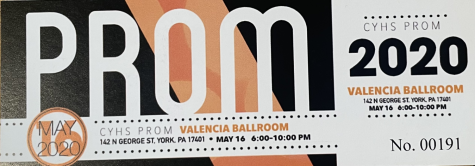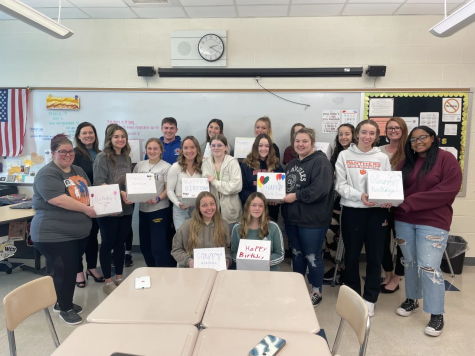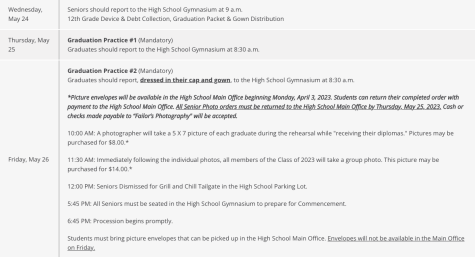Takeaways from the three presidential debates
October 22, 2020
The first presidential debate of 2020 took place Sep. 29 at Case Western Reserve University in Cleveland, Ohio, pitting Republican nominee and incumbent President Donald Trump against Democrat and former Vice President Joe Biden. Moderator and journalist Chris Wallace presented the candidates with six segments, each spanning 15 minutes and including two uninterrupted minutes for each candidate. That was how the debate was intended to go, but the American people received something much, much different.
“That was a hot mess, inside a dumpster fire, inside a train wreck,” CNN correspondent Jake Tapper said. “We’ll talk about who won the debate, who lost the debate … One thing for sure, the American people lost.”
Trump forced the issue early and often, continually interrupting and sometimes shouting over both Biden and Wallace. Although a playground strategy, it did noticeably rattle Biden and caused the 77-year-old to lose his train of thought at times.
It felt like Trump’s strategy was not to expand upon his ideas or to present any new agenda, but rather to just suppress any opposing ideas from Biden. In doing this, he came off as rude and unpresidential and surely didn’t pull many undecided voters to his side.
Biden had several moments in which he faced the camera and directly addressed the over 73 million viewers of the debate. These were some of the strongest and most focused statements of the night, which were a very welcome sight amidst the temper tantrums that plagued the rest of the debate.
Trump was pressured to condemn white supremacists in the latter stages of the debate but dodged the question. He also made personal remarks about Biden’s sons, Hunter Biden and the late Bo Biden. Both of these moments resulted in social media backlash and furthered the narrative that Trump is a bad man.
It was a 90-minute dog fight that left us with more questions than answers and really felt like something out of a reality TV show. Although it was a very muddied night, it’s fair to say that Joe Biden benefitted the most, and hardly by any of his own doing.
The University of Utah hosted the vice presidential debate between current Vice President Mike Pence and Biden’s running mate, Sen. Kamala Harris on Oct. 7. The debate revealed a much different story. The debate followed the same format as the first presidential debate, with USA Today’s Susan Page, the moderator, presenting the candidates with six topics and giving each two uninterrupted minutes to speak. Overall, the debate was much cleaner and certainly more civilized than last time.
Although much less often than Trump, Pence still had several instances of talking longer than the designated time limit and interrupting Harris. A big issue for Pence on the night was his responses just being too long-winded. He took a long time building up to his ultimate point, as he listed off supporting evidence without really explaining what those facts added up to. Pence also came after both Biden and Harris’s records during the night, as well as referencing the issues of the Green New Deal and fracking several times.
He did a great job of showing empathy, offering kind words to victims of the virus, of police brutality and even offering congratulations to Harris for being on the debate stage. Perhaps to compensate for Trump’s brashness, Pence did a solid job of remaining respectful and dignified. Several times Pence said, “You’re entitled to your opinion, but not your own facts.”
Overall he had an effective debate and certainly helped the Trump team gain back some ground after a shaky past few weeks.
For Kamala Harris, she looked strong and confident after a bit of a slow start. She hit points about the Trump administration’s handling of COVID-19, the repercussions of the Trump administration attempt to repeal the Affordable Care Act and some of Trump’s most controversial statements during his presidency.
“The American people have witnessed what is the greatest failure of any presidential administration in the history of our country,” Harris said about the Trump administration’s handling of the virus.
Harris did fail to answer the question about if the Democrats would pack the Supreme Court, while both candidates avoided questions about the possibility of the winning president becoming unfit to lead the country due to their age and health conditions.
The debate was very close and tough to choose a winner from. It felt much more important, as both sides were able to more clearly lay out their agenda and their views on some of the biggest issues – which is the very information the American people need to know to cast an educated vote.
Third presidential debate:
The second presidential debate between Donald Trump and Joe Biden was originally scheduled for Oct. 15. Trump’s positive COVID-19 test threw a wrench in these plans, however. The Commission on Presidential Debates initially decided to allow for a virtual debate between the two candidates. This led to concerns about possible cheating and ultimately led to Trump’s campaign team refusing the plan. Biden’s team then decided to do a solo town hall meeting, giving him an opportunity to answer questions uninterrupted. That was followed by Trump’s team opting into a town hall meeting of their own, probably to just match the competition.
Trump’s meeting was hosted by NBC in Miami, Fla. and moderated by Savannah Guthrie, an NBC anchor. Guthrie really took control of the debate with her aggressive questioning and frequent fact-checking of Trump. The former lawyer garnered praise in some circles for keeping Trump in check on Thursday. At the same time, she also has been criticized for being too much of an antagonist and showing bias in her questioning and her approach.
The two covered a variety of topics, including the pandemic, the issue of masks, Trump’s tax returns, white-supremacy and more. He effectively admitted that he did owe over $400 million in taxes, but followed it up by downplaying the total as “not a big deal.” This was the first time that Trump confirmed any truth behind the initial report on the issue from The New York Times.
Trump was also asked about QAnon, a group of far-right conspiracy theorists that claim the country is run by Satan-worshippers who run a global child sex-trafficking ring, with their savior being President Trump. Definitely not the group you’d want to side with if you care at all about your public image. Yet oddly enough, Trump refused to denounce the group, simply insisting that he didn’t know much about them.
The biggest takeaway from the meeting is how much it felt like a debate still. Guthrie’s combativeness combined with Trump’s famous brashness caused the two to butt heads frequently through the night. It was yet another moment of Trump receiving very negative press, signifying the public losing patience in the President. For Trump, it’s another public appearance that did little to aid his public image. Undecided voters really didn’t gain any reason to vote for him and his naysayers gained even more reason to naysay.
Joe Biden’s town hall was hosted by ABC in Philadelphia, Pa and was moderated by a former Democratic advisor in George Stephanopoulos. The tone of the meeting was much more friendly toward Biden, who was able to offer detailed responses to a number of policy-related questions.
Biden took a firm stance for transgender rights, saying, “There should be zero discrimination.” He vowed to roll back several bills that limited transgender rights. In doing this, Although not going into real specifics about what he’d actually do, Biden still established that he can be an advocate for the LGBTQ+ community.
The issue of climate change reared its ugly head as well. Biden made very clear that he does not support the Green New Deal, insisting instead that the Biden plan is the way to go. His plan would spend $2 trillion over a four-year span to help support clean energy and eliminate emissions from the power sector. Biden also restated that he would not fully ban fracking, but he would end tax breaks and subsidies for oil.
Biden went on rants against Trump, most notably about his foreign policy and his backing the U.S. out of several international organization. Biden was also confronted with the issue of his 1994 Crime Bill, to which Biden admitted that he regretted signing the bill. He followed it up by insisting that he does not want to defund the police, but rather just enable more training and the use of social workers to help in high-pressure situations.
Overall, the town hall meetings humbled the two candidates. Both revealed more about themselves and their plans than they had at any point during the campaign cycle. Biden entered Thursday having a lead on Trump and that’s unlikely to change based on these three debates. Time will tell who will become the 46th president of the United States, but Nov. 3 is rapidly approaching.



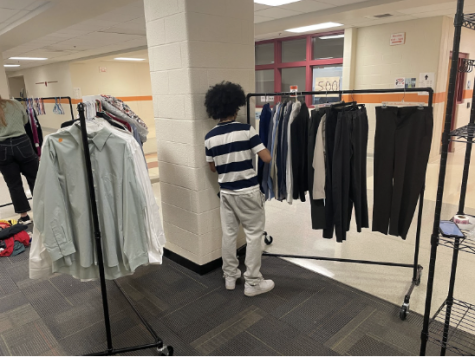
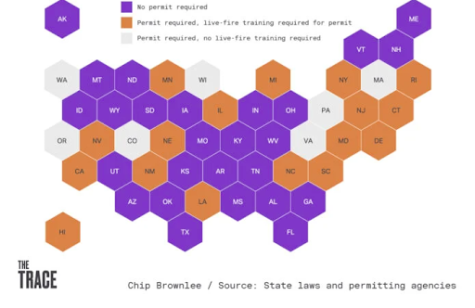

![“She [Walker] was the biggest advocate for any student,” said Basile.](https://mundismillmedia.com/wp-content/uploads/2023/05/Colorful-Watercolor-Note-Paper-with-Brush-Stroke-A4-Document-336x475.png)
